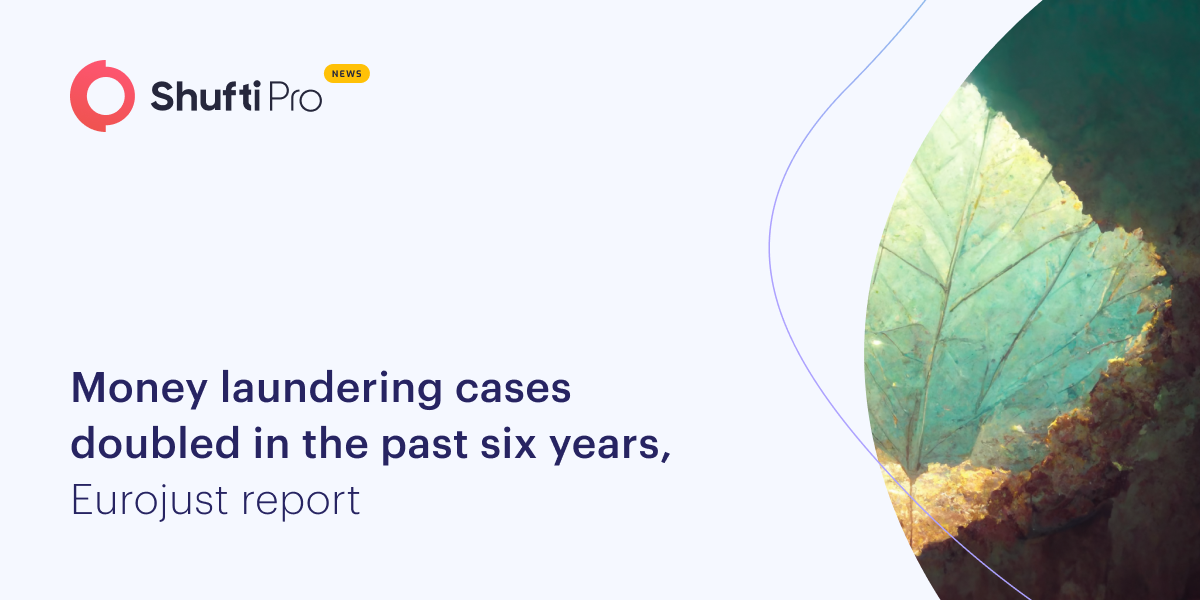Money Laundering Cases Doubled in the Past Six Years – Eurojust Report

Eurojust has recorded around 3000 cases of cross-border money laundering over the last six years. In 2021, the Agency received over 600 cases, which is more than twice as many as were reported in 2016.
Money laundering is a major problem on a global scale, yet it is challenging to evaluate due to its hidden nature. According to the UNODC, 2 -5% of the world’s GDP, or more than 1.87 trillion Euros, is estimated to be laundered annually. This is in accordance with Eurojust’s case stats, which indicate that money laundering cases made up over 15% of all reported cases to the Agency from 2016- 2021.
Finding the beneficial owner of illegal assets is a big challenge in several money laundering scenarios. Cryptocurrencies, which criminals are increasingly using to conceal their illicit income, provide an additional obstacle for cases involving money laundering because it is challenging to keep hold of the assets owned by anyone under investigation.
The experience of Eurojust reveals additional basic challenges, such as how to establish who qualifies as a victim in a specific nation and how to guarantee equitable compensation for the victims when the amounts frozen are insufficient. In certain circumstances, it may be beneficial to clarify via Eurojust the legal justification for the freezing of funds allocated for victim compensation.
The tracing of transactions within the EU can, in some situations, be done very easily. However, when assistance is needed from outside the EU, things get more challenging, and occasionally authorities give up trying to get that help. Again, Eurojust’s extensive network of Contact Points and Liaison Prosecutors has shown to be quite beneficial in judicial collaboration with other countries.
France, In the last six years, Eurojust handled cases involving international money laundering from every EU member state, and the majority of them came from Italy, Spain, Germany, France, and the Netherlands. Switzerland, the UK, the US, and Ukraine have been the non-EU states mainly active among the more than 60 third countries that were also affected. The money laundering cases handled by Eurojust demonstrate how the Agency’s both practical and legal assistance has greatly aided practitioners in coming up with solutions.
The latest proposal for an AML package, which was published in 2021, is just one example of how much attention lawmakers have given to money laundering in recent times. Eurojust will keep a close eye on advancements in this field and assist professionals who are working to prosecute money launderers.
Suggested Read: Money Laundering Becomes Another Cause of Poverty, Says UN

 Explore Now
Explore Now













